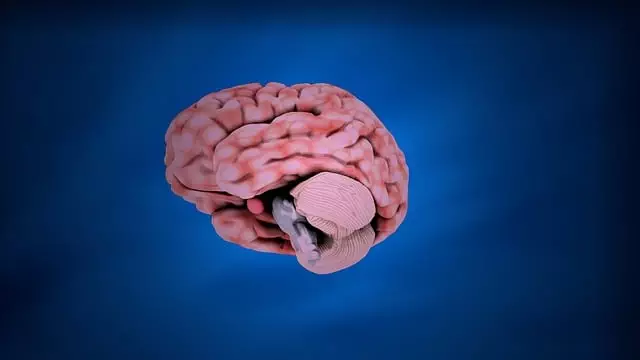Resilience is a vital component of mental well-being, as demonstrated by organizations like Kaiser Permanente, which have integrated resilience-building exercises into their services in Norcal and Longmont. The RFM model (Resilience, Flexibility, Mental Agility) offers an effective framework for mental health education, with risk assessments ensuring personalized and accessible support. Implementing RFM programs within organizations enhances employee well-being through emotional intelligence training, mindfulness practices, and regular feedback. Kaiser Permanente provides essential resources, including a mental health phone number in Norcal and Longmont, along with cultural competency training and self-care initiatives like journaling.
Resilience is a vital asset for organizations and communities facing growing challenges. RFM (Recovery, Flexibility, and Mobilization) exercises have emerged as powerful tools to build this resilience. This article guides you through understanding RFM’s role in fostering mental health and adaptability, especially within organizations. We provide a comprehensive step-by-step guide on implementing RFM exercises, highlighting successful initiatives like Kaiser Permanente’s mental health support services in Norcal and Longmont. Discover how these strategies can enhance your community’s resilience.
- Understanding RFM and Its Role in Resilience Building
- Implementing RFM Exercises: A Step-by-Step Guide for Organizations
- Kaiser Permanente Mental Health Support in Norcal and Longmont: A Resource Spotlight
Understanding RFM and Its Role in Resilience Building

Resilience is a critical component of mental well-being, enabling individuals to navigate life’s challenges and setbacks with strength and adaptability. Recognizing this need, organizations like Kaiser Permanente have been integrating resilience-building exercises into their services, particularly in regions such as Norcal (Northern California) and Longmont, Colorado. These initiatives are part of a broader strategy aimed at enhancing mental health support.
The RFM (Resilience, Flexibility, and Mastery) model is one such framework that has gained traction in the field of mental health education programs design. By focusing on these three dimensions, RFM exercises help individuals develop coping mechanisms for stress management. This approach is particularly valuable for at-risk populations and mental health professionals who often deal with complex cases. Additionally, risk assessments play a crucial role in tailoring these resilience-building activities to meet individual needs, ensuring that support is both effective and accessible, just as the Kaiser Permanente mental health phone number facilitates timely access to professional guidance for those seeking assistance.
Implementing RFM Exercises: A Step-by-Step Guide for Organizations

Implementing RFM (Resilience, Flexibility, and Mental Agility) exercises within organizations is a powerful strategy to enhance employee well-being and foster a thriving work environment. Here’s a straightforward guide for institutions aiming to integrate these practices, using the example of Kaiser Permanente mental health phone number Norcal Longmont as a reference point for accessible resources.
Start by acknowledging that emotional intelligence and resilience building are cornerstones for any successful implementation. Organize workshops or training sessions where employees can learn and practice techniques that promote positive thinking and emotional regulation. These could include mindfulness exercises, stress management strategies, and communication skills enhancement. Encourage participation through interactive activities, ensuring everyone feels comfortable and empowered to contribute. Subsequently, tailor RFM programs to meet the unique needs of your workforce, incorporating regular check-ins and feedback mechanisms to ensure ongoing support and adaptability.
Kaiser Permanente Mental Health Support in Norcal and Longmont: A Resource Spotlight

Kaiser Permanente, a renowned healthcare organization, offers mental health support services in Norcal and Longmont, providing valuable resources for those seeking assistance. The dedicated team at Kaiser Permanente understands the significance of addressing mental wellness, which is why they’ve implemented various initiatives to cater to their community’s needs.
For individuals in need, the mental health phone number for Kaiser Permanente in Norcal and Longmont serves as a lifeline. This accessible service allows people to connect with trained professionals who can offer guidance on managing stress, anxiety, and other mental health concerns. In addition to this, Kaiser Permanente conducts Healthcare Provider Cultural Competency Training to ensure their staff is equipped to handle diverse populations effectively. They also promote self-care through Mental Wellness Journaling Exercise Guidance, encouraging individuals to prioritize their mental wellness with practical techniques such as mindfulness and stress reduction methods tailored to their unique circumstances.
Resilience is a cornerstone of mental well-being, especially in today’s ever-changing world. Implementing RFM (Resource, Flexibility, and Mastery) exercises, as outlined in this article, provides organizations with a powerful tool to enhance employee resilience. By following the step-by-step guide and learning from successful initiatives like Kaiser Permanente’s mental health support services in Norcal and Longmont, businesses can create supportive environments that foster adaptability and emotional agility. Remember, building resilience is not just beneficial for employees; it contributes to a more robust and sustainable organizational culture. For those seeking immediate assistance, the Kaiser Permanente mental health phone number for Norcal and Longmont regions offers valuable resources.






